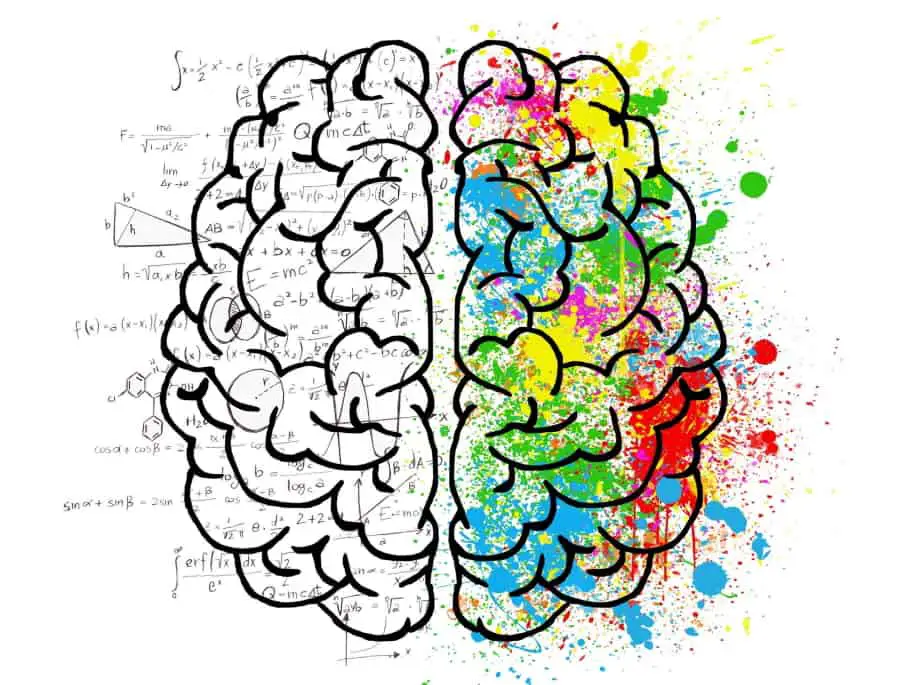
Learning a language can provide many benefits, from allowing you to communicate with more people to the general pride of being able to speak a foreign language. However, can learning another language increase your IQ? If so, how?
Learning a language has been shown in some studies to increase your intelligence or IQ. It requires accessing both sides of the brain and can even train your brain to reroute around damaged or injured areas. This indicates its effective cognitive benefits no matter the age.
Whether you’re learning Spanish or Dzongkha, foreign language learning can improve your cognitive abilities in more ways than one. Even if you are an experienced language learner, there are plenty of ways that foreign language learning will increase your IQ, as well as provide numerous other benefits!
Contents
Does Learning a Language Increase IQ?
Researchers have found that learning a foreign language does indeed increase your intelligence quotient, or IQ, and there is a simple explanation as to why: When you speak in a foreign language, some differences in words will force you to think before deciding what to say, thus making you use your cognitive functions. According to some studies, this increases your IQ by at least five points and even more in children.
For example, in English, there is no specific word that means “older sibling” or “younger sibling,” or even “paternal grandparent” or “maternal grandparent,” as the first word in all four of those terms are adjectives that help you relay what you’re talking about. Native English speakers are used to that.
However, the Japanese language has distinctive words for older and younger siblings (i.e., “oneesan” for older sister, “imouto” for younger sister), making you use your brain to choose the right word to convey the right message. The same goes for Swedish, where maternal and paternal grandparents have different terms, making you think before you speak.
Of course, there are other ways learning a new language can increase your IQ:
- The act of learning new vocabulary helps improve your memory and attention span (more on this later).
- Learning one language makes it easier to learn other languages.
- Scientists believe that learning a new language can help increase the synaptic capacity in your brain.
Other Mental Benefits of Learning a Foreign Language
Aside from increasing your intelligence level, learning a foreign language has been shown to have many mental benefits—some of which are related to improving your IQ—including:
A Reduced Risk of Developing Alzheimer’s and Dementia

Studies have shown that learning a foreign language can keep your mind sharp for longer, with those who can speak multiple languages developing dementia at a later age (75) than monolingual folks (71), and there’s a chance that the risk for dementia itself is reduced by learning another language.
This is because learning a new language requires the use of your prefrontal cortex, the part of the brain that controls planning, decision making, short-term memory, and language comprehension. These four functions tend to decrease at the onset of dementia or Alzheimer’s, so keeping them functional is super beneficial!
Another corrective action that learning a second language forces your brain to do is to reroute neural pathways around degenerated or damaged sections of the brain. In learning a language, we cause our brain to regularly create new pathways and form solutions in the immediate. This aides elderly brains that can use this skill to make new connections where old ones have been lost.
Better Mental Flexibility
Speaking in multiple languages can sometimes force you to change from one language to another, depending on the situation. Having to switch between languages, as well as having to suddenly use the new grammar and speech rules of another language, can increase your ability to multitask, especially if you’re someone who isn’t so good at switching between tasks.
Being able to ‘think on your feet’ is a valuable skill in most any situation. This is directly trained by those that hone the ability to think in two or more languages at the same time. Switching between these languages not only helps in communication in a given situation, it also increases the brain’s ability over time to adapt.
Increased Ability in Perception and Decision Making
While learning a foreign language will already help protect your prefrontal cortex, learning can also help enhance it too. Research has shown that people who speak multiple languages are more able to perceive subtle communication cues and thus make better, more rational decisions.
We know that inflection in the voice, pauses, and emphasis can essentially change the meaning of a word or phrase in English. In other languages, this is even more pronounced.
Learning how people around the world use these things to give emphasis or even change the meaning of speech makes the learner more aware of what is actually being communicate, even in spite of the words used.
Improved Focus and Concentration Skills
And, of course, learning a new language can improve your focus, concentration, and attention. Having to switch between different languages forces your mind to focus, increasing your concentration skills and attention span.
Having to switch between languages and focusing on what you want to say will also help you unconsciously block out outside distractions after some practice, thus allowing you to focus on something without any interference from the outside world.
Those that have learned multiple languages will tell you that you have to let the language ‘wash over you’ in order to truly develop fluency. What they are really saying is for you to develop your focus and concentration to the point of being impervious to distraction. It means to push out other input and focus more fully on the language.
This may seem counterintuitive, but in reality this ‘wash over’ affect is not passive, but active in its clearing of the mind of other stimuli. This allows your brain to absorb the input from the target language more effectively.
Language Learning Difficulty vs. IQ
No foreign language is better than the other in regard to reaping the benefits of multilingualism. The true distinguishing factor between foreign languages is instead the difficulty it is to reach proficiency.
- Languages closer to English, such as Dutch and most of the romance languages (Spanish, French, Italian, etc.), take around 600 hours to reach basic proficiency (or around one year and seven months if you practice for one hour a day).
- Languages further from English, such as Arabic and the East Asian languages (Chinese, Japanese, Korean, etc.), can take over 2,200 hours to reach basic proficiency in (or six years if you practice for one hour a day) because of their fundamentally different grammatical rules and vocabulary.
Regardless of whether you are learning a language closer to English, your IQ will not rise more or less. In other words, no language will increase your IQ more than another, no matter how difficult it is to learn.
For a detailed look at the most difficult languages to learn for those with English as their native language or those learning English from other languages, see my article here.
Does Learning More Languages Boost IQ?
Depending on what you are learning and your dedication to both languages, it might be possible for you to learn two languages at once. You will most likely not reap the benefits of learning a new language as fast, but the benefits will be more rewarding after some time.
However, this is also somewhat of a masochistic pursuit, especially if you are not too proficient in either language. This is because you can mix up words in one language for words in another, and might not gain a degree of fluency in either for much longer than if you were only learning one language.
Some experts suggest that two languages can be learned simultaneously and effectively if one of the languages is learned first into the intermediate stages before attempting the second. This aids in many ways.
- Beginning words and concepts will be solidified in the first while being learned later in the second.
- Motivational goals will be more regularly attained as the two languages are learned on different time lines.
Keep in mind, the benefits of learning multiple languages in the realm of IQ is in the process of learning and communicating in the languages. We find the gains are found in the process and not necessarily in the end result.
Due to the challenges of learning two foreign languages at once, the learner may find a more rapid increase in IQ or they may simply become overwhelmed and stop learning altogether. Continued learning is the goal.
Learning Multiple Languages to Improve IQ
Despite the challenges, as the benefits of learning a language are increased by learning two different languages at once, you can increase your IQ level much more after a more extended period, sometimes by over 10 points, according to some sources.
The best way to achieve this larger increase in IQ—if you wish to achieve it—is to learn two completely different languages at once. This way, you will not confuse the vocabulary and syntax as much and gain a decent amount of proficiency in both after some time.
If you learn two similar languages at once, such as Spanish and Italian, you risk the aforementioned “mixing up the words” between languages, as your proficiency in either is most likely not good enough for you to distinguish the differences between two similar languages.
To prevent this, and to reap the benefits of language learning, learn two languages that are significantly different from one another, such as Japanese and French or Spanish and Russian. One may be harder to learn than the other, but you will not confuse nearly as much syntax—and your brain just may be smarter for it!
Final Thoughts
And there you have it, the correlation between learning language and increasing IQ explained, as well as other benefits to learning a foreign language, the benefits of learning two languages at once, and other tips!
Remember, though, that you don’t have to devote hours upon hours to learning a foreign language, especially if you are short on time. Just try and set aside 30 minutes or an hour each day to learn something new in your language of choice, and of course, review already learned material.
Whether you are learning Japanese or Spanish, French, or Dutch, it will take some time to reap the benefits of language learning, and that’s okay! Rome wasn’t built in a day, after all. Happy learning!
